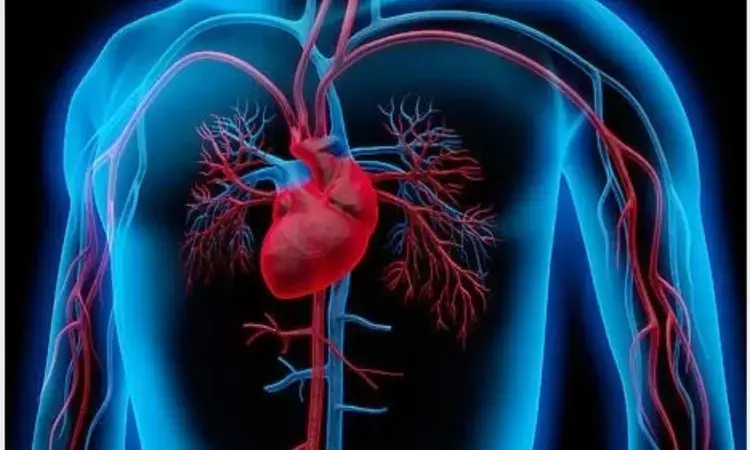- Home
- Medical news & Guidelines
- Anesthesiology
- Cardiology and CTVS
- Critical Care
- Dentistry
- Dermatology
- Diabetes and Endocrinology
- ENT
- Gastroenterology
- Medicine
- Nephrology
- Neurology
- Obstretics-Gynaecology
- Oncology
- Ophthalmology
- Orthopaedics
- Pediatrics-Neonatology
- Psychiatry
- Pulmonology
- Radiology
- Surgery
- Urology
- Laboratory Medicine
- Diet
- Nursing
- Paramedical
- Physiotherapy
- Health news
- Fact Check
- Bone Health Fact Check
- Brain Health Fact Check
- Cancer Related Fact Check
- Child Care Fact Check
- Dental and oral health fact check
- Diabetes and metabolic health fact check
- Diet and Nutrition Fact Check
- Eye and ENT Care Fact Check
- Fitness fact check
- Gut health fact check
- Heart health fact check
- Kidney health fact check
- Medical education fact check
- Men's health fact check
- Respiratory fact check
- Skin and hair care fact check
- Vaccine and Immunization fact check
- Women's health fact check
- AYUSH
- State News
- Andaman and Nicobar Islands
- Andhra Pradesh
- Arunachal Pradesh
- Assam
- Bihar
- Chandigarh
- Chattisgarh
- Dadra and Nagar Haveli
- Daman and Diu
- Delhi
- Goa
- Gujarat
- Haryana
- Himachal Pradesh
- Jammu & Kashmir
- Jharkhand
- Karnataka
- Kerala
- Ladakh
- Lakshadweep
- Madhya Pradesh
- Maharashtra
- Manipur
- Meghalaya
- Mizoram
- Nagaland
- Odisha
- Puducherry
- Punjab
- Rajasthan
- Sikkim
- Tamil Nadu
- Telangana
- Tripura
- Uttar Pradesh
- Uttrakhand
- West Bengal
- Medical Education
- Industry
Severity of MR at admission for decompensated HF predicts rehospitalization, death risk: Study

Bronx, NY: A recent study has revealed that more than half of patients presenting with acute decompensated heart failure have at least moderate functional mitral regurgitation (FMR) -- associated with increased readmission rates and mortality.
Further, the presence of higher severity functional mitral regurgitation (FMR) on admission for acute decompensated heart failure has long-term prognostic significance.
The study appears in the Journal of the American Heart Association (JAHA).
In patients with chronic heart failure and left ventricular systolic dysfunction, FMR has emerged as a therapeutic target. However, the significance of FMR in acute decompensated heart failure is not clear. Therefore, Ulrich P. Jorde, Albert Einstein College of Medicine, Bronx, NY, and colleagues aimed to systematically investigate the prevalence and clinical significance of FMR on admission in patients admitted with acute decompensated heart failure and left ventricular systolic dysfunction.
For this purpose, the researchers conducted a single‐center, retrospective review of patients admitted with acute decompensated heart failure and left ventricular systolic dysfunction. They were divided into 3 groups of FMR: none/mild, moderate, and moderate‐to‐severe/severe FMR.
The primary outcome was 1‐year post‐discharge all‐cause mortality. The researchers also compared these groups for 6‐month heart failure hospitalization rates. Out of 2303 patients, 39% (896) were women.
Following were the study's key findings:
· Median left ventricular ejection fraction was 25%.
· 20% of patients had moderate‐to‐severe/severe FMR, which was independently associated with 1‐year all‐cause mortality.
· Moderate or worse FMR was found in 53% of patients and was independently associated with 6‐month heart failure hospitalization.
· Female sex was independently associated with higher severity of FMR.
"There is a need to undertake intensified post‐discharge follow‐up to eliminate FMR amenable to pharmacological therapy and enable timely and appropriate intervention for persistent FMR," wrote the authors. "Further studies are required to examine sex‐related disparities in FMR."
Reference:
The study titled, "Severity of Functional Mitral Regurgitation on Admission for Acute Decompensated Heart Failure Predicts Long‐Term Risk of Rehospitalization and Death, was published in the Journal of the American Heart Association (JAHA).
Dr Kamal Kant Kohli-MBBS, DTCD- a chest specialist with more than 30 years of practice and a flair for writing clinical articles, Dr Kamal Kant Kohli joined Medical Dialogues as a Chief Editor of Medical News. Besides writing articles, as an editor, he proofreads and verifies all the medical content published on Medical Dialogues including those coming from journals, studies,medical conferences,guidelines etc. Email: drkohli@medicaldialogues.in. Contact no. 011-43720751


